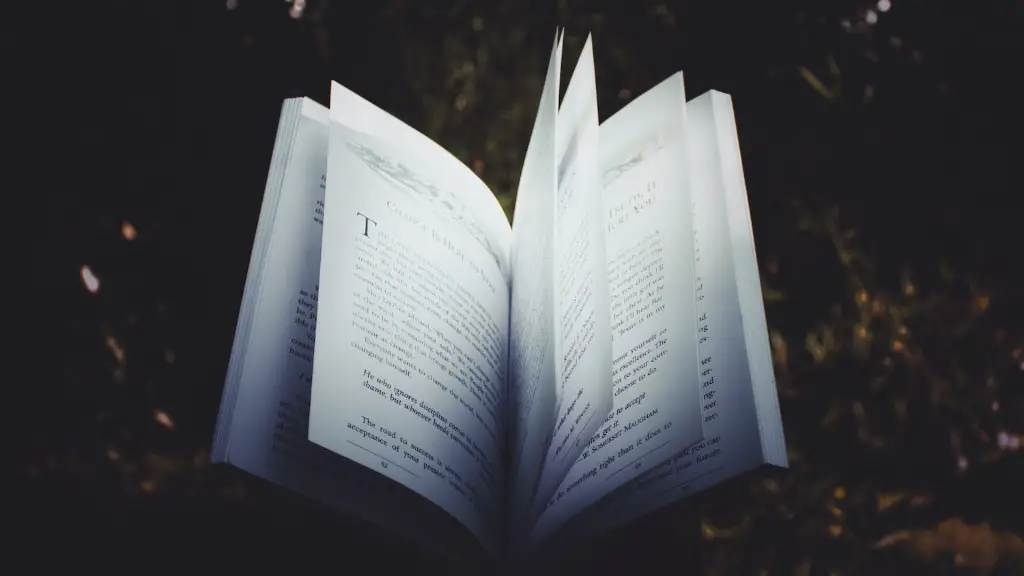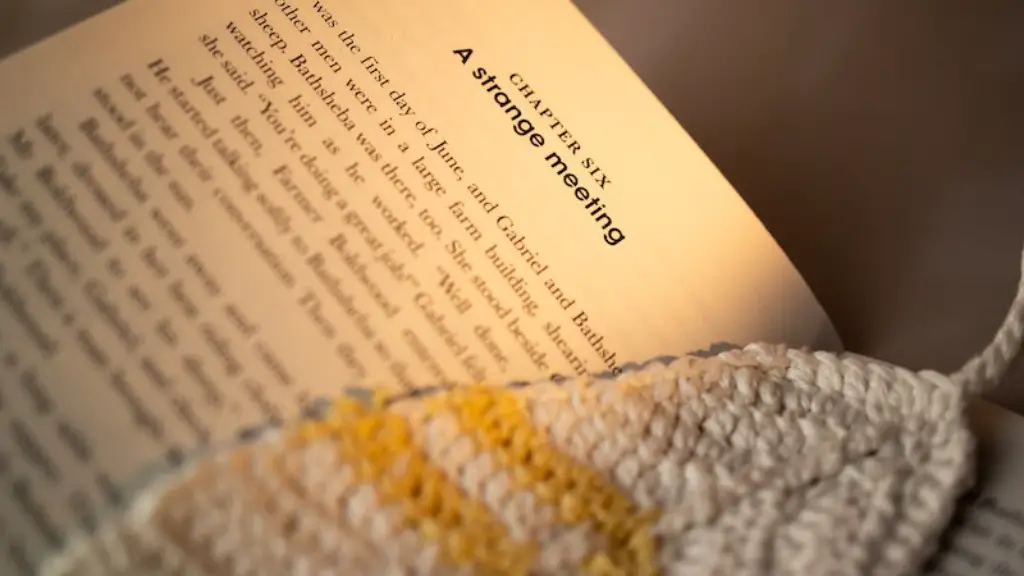Identify Your Interests and Experiences
Every poet has to start somewhere and the best way to find inspiration for poetry is to look for subjects that you are interested in and have some experience with. Identifying what makes you unique, such as your personal beliefs, life experiences, and creative ideas, can help you create completely unique and individualized poems. By observing the world around you, discovering meaningful topics, and collecting interesting facts and thoughts, you can load your mind with ideas for your next masterpieces. Taking the time to read different kinds of texts, books, and poems can also help fill your mind with inspiring and thought-provoking ideas.
Pay Attention to Nature and Your Surroundings
The natural world and all its elements can also be a great source of inspiration. Whether it is simply observing a beautiful sunset, analyzing the many cultures and customs, or even observing the anatomy of an animal, taking the time to appreciate the gifts of nature can spark creativity and provide unique topics for your poetry. Choosing an emotional experience or an inanimate object, and writing about it in a way that brings out your feelings about it or uncovers the hidden meaning behind it can make a poem stand out.
Read Other Poets’s Works
In addition to reading other articles, books, and journals, reading other poets’s works can help inspire your own writing. Many times, the best works of art come from making something new out of something that already exists. By reading other poet’s works, you will be able to get a better understanding of the genre and identify particular techniques that you may want to use in your work. After reading someone else’s work, try to channel your own emotions and ideas into a poem, borrowing techniques or styles from the other poets in terms of structure, style, and usage of language.
Draw Inspiration from Music
Going to poetry slams, open mic nights and other poetry related events, or even just listening to music from around the world, can provide great material for writing poetry. Music is a great source of inspiration for all kinds of writing, and poetry is no exception. Analyze the structure and meaning of the lyrics to get an idea of how the songwriter was able to create such a beautiful piece of art. Translating the emotion from the music into a poem that is more personal and flows more naturally to the reader will take your poetry to the next level.
Write About Your Daily Life
Writing about the things that you encounter in everyday life can be a great way to channel your creativity. All of the events, people, and situations that make up your day can become the inspiration for a powerful piece of poetry. Small everyday occurrences such as a conversation on the bus or a funny encounter at the supermarket can all be used to spark your creativity. Writing about something familiar will make it easier to identify the emotions and ideas behind it, and turn it into a unique piece of art.
Using the Senses to Finding Inspiration
Closely observe and experience the physical world around you, by using your senses. Taking a walk outside and experiencing the sights, sounds, and smells can help you get creative. Writing about the things that you see, hear and touch can be used to capture the beauty of the physical world and make a poem come alive. Focusing on the physical sensations of an event can help you uncover new meanings and interpretation, while also allowing you to explore your emotions.
Reach Out to Your Creativity
Finally, in order to fully unleash your creative potential, try experimenting with different writing styles and forms. Making a conscious effort to push yourself out of your comfort zone can help you be open minded to different ideas and explore different modes of writing. Finding yourself in a creative rut can be difficult, but try not to let it discourage you and keep exploring and experimenting until inspiration strikes.
Explore Unfamiliar Concepts and Experiences
Experience the new and unknown. Unfamiliar experiences can help you find inspiration for your poems. Think of activities or things that are not part of your daily life and take the time to explore them. Visit a farmer’s market, a local art exhibit, or a new place in town that you’ve never been. After your exploration, you can use the information and experiences to create an original piece of art.
Express and Amplify Emotions
Writing poetry can often be an opportunity to express and amplify emotions which might be difficult to communicate in another form. Use this ability to be more honest and connect empathically with your audience. Writing about emotions and reflections on personal events are a great way to express your feelings, while also giving your audience an opportunity to enter your world and open up to a broader perspective.
Synthesize Your Work
Synthesizing is another way to find inspiration for your writing. Draw from your past experiences and combine them into a unique concept or story. Synthesizing can often lead to new ideas and concepts, as well as a unique style of writing which is all yours. Organize the information, facts, and stories into an organized system so that your poem is easier for the reader to understand.
Try to Tell a Story
Telling a story is a great way to capture the attention of the audience and bring a poem to life. Developing a back story and creating characters to help convey a message can be an intriguing way to get your point across. Choose a topic that you feel passionate about, and use the characters and plot to advance the plot and incite emotions. By making the reader a part of the story, you give them an opportunity to truly feel your poem and explore the beautiful and powerful world of poetry.


